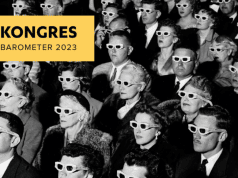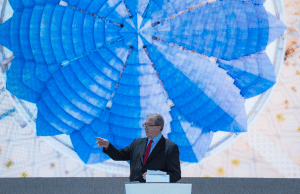As the political awareness of the congress industry is gaining momentum throughout the world, there can be little debate that strategic investment in infrastructure development remains disjointed in many ways. The opportunity cost because of this lack of joined up thinking at a macro economic level by governments and national airlines can be striking.
I have now been closely associated with South East Europe for a number of years and over the last three more so with my association with Conventa. During this time, a recurring theme among the many high profile internationally recognised business experts in our industry has been all too consistent – great region but difficult to access comparative to other destinations close by such as Vienna and even Athens. There is simply no doubt that factors limiting the growth of the congress industry in the region include a lack of investment by governments in promoting the destinations and the increasing, yes increasing difficulty for congress and event planners in accessing the key meeting and event facilities by air with national airlines seeking a free market solution to managing the airlines despite a relatively small economic/demographic critical mass to depend on. Put in another way, the airlines are not being regarded or seen as a cost effective use of government investments in order to drive inward investment – in the case of international meetings and events the per capita economic gain would be far greater than that from leisure tourism. Every economic impact study carried out so far using the methodology developed through the offices of the UN World Tourism Organisation, which uses the national accounts of the individual countries concerned, proves without question the considerable economic benefit to be derived from the business of meetings and events.
In the run up to Conventa in 2012, the national carrier at short notice simply cancelled routes to major European cities which not only impacted negatively on the event but more importantly in the long run, and projected the clear message that Slovenia was closed for business in the winter months. This constitutes a major missed opportunity – most of Europe from late October through to the end of November and mid January to the end of March is extremely busy for the congress and events industry – indeed, November and March are often the key peak months for many destinations. With some joined up macroeconomic planning at a government level with a private public sector partnership, there is a long term golden opportunity to place the region in the forefront of consideration by congress and event planners when considering which destinations to choose for their BUSINESS and their greater per capita consumption than leisure tourists! It is globally accepted that ACCESSIBILTY to a destination is always in the top three criteria for selecting a destination – accessibility principally through budget airlines however well they are managed simply means that a destination remains or becomes ever more uncompetitive. Such positioning brings with it ever greater lost economic benefit, fewer jobs than then might otherwise be and definitely lower taxation revenue might also be collected. The solution for Slovenia and its neighbours is clear, use the national carriers to drive demand for the destination, invest strategically and effectively in organisations such as the convention bureaux whose job is to drive economic benefit for destinations and do both of these things at the time of the year when the global congress and events markets need it – the results will, over time, be measurable in terms of contribution toGDP, job creation, taxation revenue (and incidentally, the congress business drives additional tourism not the other way round) let alone the great social impact of transfer of knowledge and business know-how.













